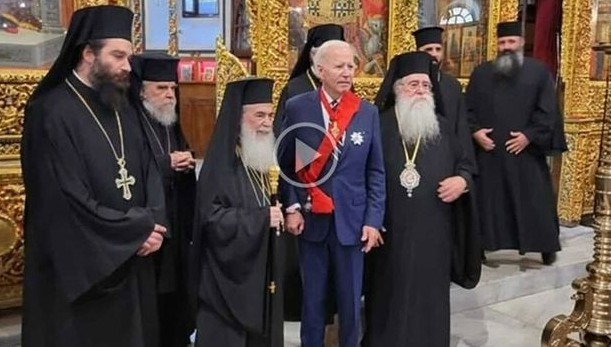Russia’s Newest Opposition Leader
Over the weekend, Yulia Navalnaya witnessed Vladimir Putin’s re-election as Russia’s president, despite his role in the imprisonment and alleged assassination of her husband, Alexei.
Just weeks ago, Navalnaya declared her assumption of her late husband’s position as the leader of a prominent Russian opposition group. However, she observed the voting from exile, as many of Putin’s critics now reside outside Russia to evade arrest or worse.
Navalnaya deserves acknowledgment for her pursuit of a genuine post-Putin Russian democracy. Yet, I find myself among the skeptics regarding her prospects of success.
The unfortunate reality is that opposition movements combating dictatorships, particularly those compelled into exile, have seldom triumphed in the post-Cold War era. The regimes they seek to overthrow have grown more technologically adept, better organized, and less susceptible to international pressure.
Although dictators may occasionally permit limited opposition within their borders or fabricate dissenting groups, they often compel dissenters to flee into exile. While this distance may afford dissidents more freedom of operation, it can also undermine their effectiveness.
Presently, Russia’s exiled opposition still manages to mobilize citizens within the country. This Sunday, in a symbolic display of dissent backed by various opposition factions, disgruntled Russians turned out in large numbers at polling stations nationwide as noon approached across different time zones.
Navalnaya and her late husband’s team are seasoned players in this arena, but the hurdles they face are likely to intensify.
Proponents of democracy are often hesitant to concede that exiled oppositions frequently flounder, falter, or lose relevance. Yet, when I consulted several activists, analysts, and experts about Navalnaya’s prospects (who declined an interview), they offered plentiful advice on avoiding pitfalls.
Primarily, maintaining unity within the opposition movement is paramount. Opposition groups frequently clash over tactics, strategies, ideology, and leadership, diverting energy away from confronting the regime.
When protests erupted across Iran in late 2022 following the death of a young woman accused of defying Islamic dress codes, internal discord among Iranian opposition activists, many based abroad, escalated. An effort to unite prominent Iranian exiles, including former crown prince Reza Pahlavi, swiftly crumbled.
Navalnaya could facilitate alignment among these groups by transcending old grievances, suggested Garry Kasparov, a former chess champion and another Russian opposition figure in exile. While he did not cite specific examples, some analysts propose that refraining from social media disputes is a good starting point.
Furthermore, maintaining connections with the populace back home is crucial. The longer opposition activists remain outside the country, the greater the risk they may lose touch with the aspirations of those inside.
Exiles may advocate for greater political rights, while citizens back home may be preoccupied with more immediate concerns like economic stability. Exiles may urge domestic populations to rise up, but those on the ground face the regime’s repressive apparatus.
However, staying connected is challenging as regimes often restrict internet and phone access. Many Cuban opposition activists abroad have long demanded a hardline U.S. stance towards Havana, yet due to a lack of reliable polling, it remains uncertain if Cubans within support such a position.
Meanwhile, Cuba’s communist government partly blames exiled opposition for the country’s woes. Johana Tablada, a senior Cuban official, asserted that exiled opposition had exacerbated hardships for many Cubans they purportedly defended.
Alexei Navalny’s decision to return to Russia despite the risk of imprisonment in 2020 underscores the perceived limitations of exile. Even while detained, Navalny managed to disseminate messages through aides predominantly based outside Russia. Concerns linger that following the election, the Kremlin may intensify efforts to curb the team’s ability to reach Russians via platforms like YouTube.
Exploiting both minor and major vulnerabilities can be instrumental in toppling a dictatorship. Opposition groups might target enabling oligarchs, political allies, or individuals benefitting from the ruler’s patronage. Shedding light on these issues could catalyze internal dissent, leading to wider resistance.
Navalnaya’s group has prioritized anti-corruption efforts, a subject that resonates with ordinary Russians, although it may not attract attention from world leaders eager to support broader regime change agendas.
Maintaining vigilance against reprisals is essential. Navalnaya understands the risks of opposing Putin, even from afar, given the track record of critics of the regime meeting untimely ends worldwide.
Other autocratic regimes, from Iran to Rwanda, are accused of carrying out kidnappings and killings beyond their borders, as well as harassing the families of dissidents left behind.
Nicaragua’s Daniel Ortega released 222 imprisoned opposition figures to the United States last year, yet the group has struggled to coalesce due to language barriers, economic challenges, and tensions among members.
Relying too heavily on Western support is ill-advised. While the U.S. and European nations often vocalize support for democracy promotion and occasionally impose sanctions or intervene militarily, their backing is conditional.
Following setbacks in Iraq and Afghanistan, direct military intervention is unpopular in the West. Moreover, economic considerations and geopolitical dynamics may prompt Western nations to prioritize stability over democratic change, particularly in dealings with influential powers like China.
Navalnaya has criticized Putin’s actions in Ukraine and urged the international community not to legitimize his reelection. She highlights the reluctance of some in the West to view Putin as a gangster rather than a politician.
Preparing for the aftermath of the dictatorship’s fall is vital. Navalnaya remains resolute in her commitment to challenging Putin’s rule, recognizing that she has been left with no alternative by the actions of the regime.
In Russia, Putin’s dominance leaves the post-Putin era uncertain. Navalnaya’s determination to press forward underscores the enduring struggle for democracy in Russia, where a true succession plan remains elusive.






